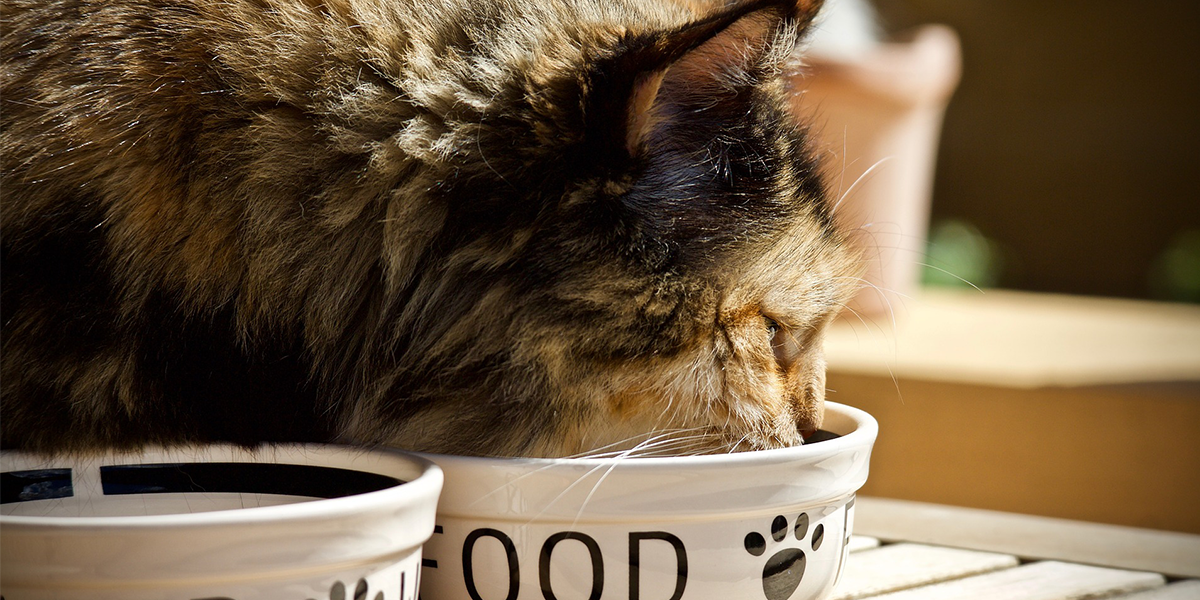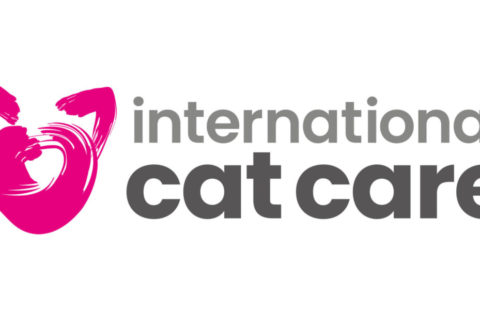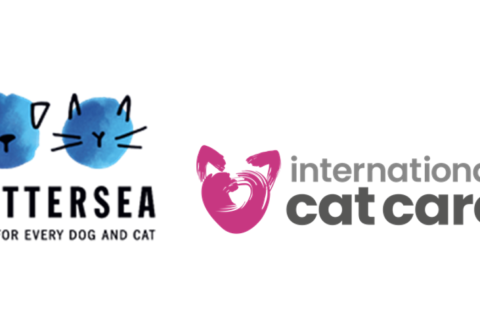A recent article in the Journal of Feline Medicine and Surgery (the veterinary journal for members of International Cat Care’s, veterinary division, the International Society of Feline Medicine) reports on a number of cats in the UK which were fed a particular commercial raw food venison diet and also contracted tuberculosis.
Dr Danièlle Gunn-Moore from the University of Edinburgh explained that in autumn 2018, the Companion Animal TB Team, Royal (Dick) School of Veterinary Studies, became aware of cases of tuberculosis (TB) caused by Mycobacterium bovis in young mainly pedigree cats living in areas of the UK where this infection is not found naturally in cattle or badgers. Since the cats could not have been infected by contact with infected wildlife (which is how they are thought to be commonly infected), other potential sources of infection were looked for. The cats were not fed raw milk, or exposed to infected people. The one consistent finding was that they had all been fed (to varying degrees) the same brand of commercial raw cat food (Natural Instinct). Further investigation found they had all eaten the wild venison version of this food. The team alerted veterinary colleagues to this potential new risk pathway via letters to the veterinary press.
The description of the investigation of the first six clinical cases and seven apparently infected cohabiting cats has now been published in the Journal of Feline Medicine and Surgery. It details six cats with abdominal disease (a swollen belly), enlarged lymph nodes (sometimes draining pus), and/or lung disease (causing a cough). The cats all lived exclusively indoors in five different households across England. Five of the cats were either too sick to treat or deteriorated despite treatment, and were euthanased; TB was confirmed in four of the six sick cats, all six of which were also TB blood test positive. All cohabiting cats were tested by the TB blood test and found to have evidence of infection; giving a total of 13 confirmed or suspected infected cats.
The number of cases has grown since this first outbreak, with there now being at least 30 households and over 90 cats tested across the UK – about half of the cats have been found to be infected.
The organism involved is a bacterium called Mycobacterium bovis, which causes tuberculosis or TB. Vets know that cats can become infected by TB (the Edinburgh team usually see about 100 each year in the UK) but the usual route of infection has been via rodent bites causing lumps or wounds which do not heal with swollen lymph nodes under the jaw or behind the knees. However, these new cases of M bovis infection affected the lungs and intestines and caused weight loss, abdominal masses, diarrhoea and in some cats coughing (which in some cases contained blood). The paper is important as it is not common to see this picture of illness in cats caused by other diseases, so vets may be suspicious of other diseases such as feline infectious peritonitis, intestinal lymphoma (a type of cancer) or severe pneumonia.
The results provide compelling circumstantial evidence of an association between a single commercial raw diet and TB in cats that ate it. Working with the Animal and Plant Health Agency and the Food Standards Authority, the Edinburgh team is trying to confirm the source of infection. The manufacturer voluntarily recalled the product pending further investigations (Dec 2018). However, they are concerned that some owners may have missed this information, and given the long duration to the products best before date – up to August 2019 – it is important that owners are aware of this recall.
It is also thought that cats, like people, may have latent infection – ie. infection that is hidden or inactive for some time. If the disease acts in cats the same way as it does in people, a few cats may show infection 5–6 months after infection and others may develop it later in life. So owners who have fed their cats this specific diet will need to keep an eye on their cat and contact their vet should it become ill so that TB can be excluded.
If a cat is diagnosed early with TB and disease is limited, treatment may be considered. Treatment is long and difficult (often requiring three drugs a day for 6 months), with no guarantee of success. However, if there is significant disease, euthanasia is recommended as there is a potential risk of infection for people. There have been very few cases of M bovis being passed from cats to people globally. In the cases that have occurred the cat had large open skin wounds. Public Health England define the risk to people as very low, but of course the infection risk should always be considered.
This report obviously refers to a group of cats in the UK fed a specific diet, however, it does raise the issue of the safety of feeding raw foods to pets. For cats, which are obligate carnivores and can become seriously ill if they do not receive all their necessary nutrients, making homemade diets can be difficult. International Cat Care recommends that any owner wishing to feed their cat this way should seek veterinary guidance to ensure the diet provides all of the nutrients that their cat needs.
The second issue is that of safety in terms of contamination with organisms which could cause disease and may also be a risk to people. The quality and freshness of the meat used is important. Care should be taken with hygiene whilst handling the food and also when cleaning the food bowl/equipment and feeding area. As always, litter tray hygiene is also important. Some meats benefit from freezing before being fed defrosted to remove possible parasite contamination. Manufacturers of commercial raw meat food should meet the regulations regarding the production of these foods.
There is a lot to be thought through when feeding cats – International Cat Care will continue to keep you updated on recent findings to help you keep your cat healthy and safe.
More information about TB in cats can be found in our advice section
Dr Danièlle Gunn-Moore of The Companion Animal TB Team at the Royal (Dick) School of Veterinary Studies, University of Edinburgh has also produced an information sheet covering questions and answers about TB in cats and the feeding of raw food:
Questions and answers about TB in cats
The JFMS article is free access for three months (from 14.05.19):
https://journals.sagepub.com/doi/abs/10.1177/1098612X19848455






